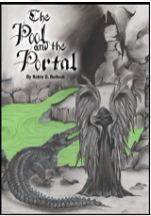Gold, Frankincense and Myrhh
Myrhh
should it be found at all coincidence that the greek word here is actually Smyrna, isn't that one of the 7 churches? of course
This word is only mentioned twice in the NT.- Once where the wise men visited Jesus when he was a baby and they brought gold, frankincense, and Myrhh (Matt 2:11),
- at the burial of Jesus.. John 19:39
in the OT LXX, this specific greek word was used in Psalm 45:8. Psalm 45 apparently commemorates the marriage of the king.. when it speaks of his throne being forever, it speaks of the king being anointed with the oil of gladness and his garments being scented with Myrhh and aloes and cassia
Also in the OI LXX, this specific greek work is used 6 times in Song of Solomon:
- Songs 3:6 - it is talking about the king, and mentions Solomon. It speaks of the day of his wedding, and that he is coming out of the wilderness like pillars of smoke... didn't the holy spirit lead the children in pillar of smoke out of Egypt through the wildnerness? Here is is mentioned that he is perfumed in myrhh and frankincense and all the merchants powders. Like Psalm 45, it speaks of swords on the thigh, and here it also mentions the wood of lebanon being made into a portable throne for Solomon to sit on.
- Songs 4:6 - Both frankincense and myrhh are mentioned twice in this chapter. Apparently this is solomon praising his bride. After all the praises, he says he will go his way on the mountain of myrhh and the hill of frankincense. Then he proceeds to talk about having no spot, and going to lebanon even mentions the fragrance of her garments being like the fragrance of Lebanon. At the end of this chapter, he reiterates the mention of both frankincense and myrhh and speaks of them in relation to an enclosed garden... once again mentioning streams of lebanon and associating them with the well of living waters.
myrrh, a bitter gum and costly perfume which exudes from a certain tree or shrub in Arabia and Ethiopia, or is obtained by incisions made in the bark: as an antiseptic it was used for embalmingthis particular word is using in the LXX in Ex 30:22-30, the Holy Anointing oil is described as being made up of:
Cf. Herodotus 2, 40, 86; 3, 107; Theophrastus, hist. pl. 9, 3f; Diodorus 5, 41; Pliny, h. n. 12, 33f; (BB. DD.; Birdwood in the 'Bible Educator', vol. ii., p. 151; Löw, Aram. Pflanzennam. § 185)
- 500 shekels of liquid myrrh
- 250 shekels of sweet-smelling cinnamon
- 250 shekels of sweet-smelling cane
- 500 shekels of cassia
- hin of olive oil
this anointing oil was to be used to anoint:
- the tabernacle of meeting
- the ark of the Testimony
- the table and all its utensils
- the lampstand and its utensils
- and the altar of incense
- the altar of burnt offering with all its utensils
- the laver and its base
this anointing oil was also to be used to anoint Aaron and his sons, and consecrate them. It was to be known to be a holy anointing oil, specifically mentioned to not be poured on the flesh of man and not to be duplicated by anyone. And it was also not to be put on any outsider.... i am assuming an outsider here is anyone not of the Aaronic priesthood, because it speaks of not pouring on the flesh of man, and the only reference to any man is Aaron and his descendants.
The root word apparently means ointment, as shown here. This was used in Matthew 26, and Mark 14, and Luke 7, John 11 and different incident in John 12. when it spoke of the woman pouring her perfume on Jesus' feet. He said she did it for his burial. Myrhh was often used in burial. This is also used in Luke 23:56 when speaking of Jesus' burial.
this word ointment was also used in Rev 18:13, along with Frankincense, wine, oil. But here it is talking about the fall of babylon and how the mercants don't buy her goods anymore.. and these are some of the goods detailed here.
Frankincense
another coincidence that the greek word here is actually libanon, which looks like lebanon.. where the cedars came from for building the temple and possibly the ark? of course
this particular word is using in the LXX in Exodus 30, which speaks of the alter of incense that is to be placed before the veil that separated the holy place from the most holy place. Aaron and his decendants were to burn incense on it every morning when he tends to the lamps; and every evening at twilight when he lights the lamps he shall burn incense on it ... a perpetual incense before the Lord. Nothing else shall be burnt on or offered on this alter, except once a year Aaron shall make atonement on its horns with the blood of a sin offering. This is in the same verse as, and located just before the description of Myrhh being used for the anointing oil
frankincense is used in the incense to be burned at the alter. this is to be comprised of:
- sweet spices
- stacte
- onycha
- galbanum
- pure frankincense
by the explanation, it seems to say that these should be salted. Like the anointing oil, the incense was to be holy and not duplicated by anyone
Gold
the greek word here looks like this. chryson. NOt sure of any significance there, but notice the number of the greek lexicon... 5557... God has his fingerprints in all things, it cannot be denied.


Comments
Post a Comment